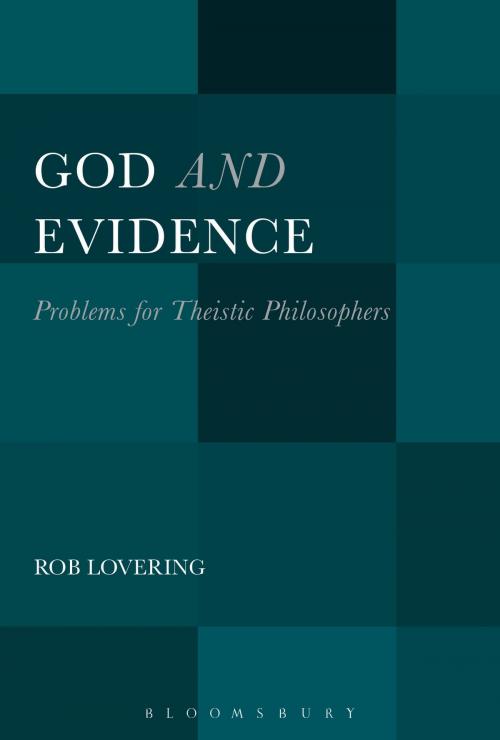God and Evidence
Problems for Theistic Philosophers
Nonfiction, Religion & Spirituality, Other Practices, Atheism, Philosophy| Author: | Dr. Rob Lovering | ISBN: | 9781623561468 |
| Publisher: | Bloomsbury Publishing | Publication: | June 20, 2013 |
| Imprint: | Bloomsbury Academic | Language: | English |
| Author: | Dr. Rob Lovering |
| ISBN: | 9781623561468 |
| Publisher: | Bloomsbury Publishing |
| Publication: | June 20, 2013 |
| Imprint: | Bloomsbury Academic |
| Language: | English |
God and Evidence presents a new set of compelling problems for theistic philosophers. The problems pertain to three types of theistic philosopher, which Lovering defines here as 'theistic inferentialists,' 'theistic non-inferentialists,' and 'theistic fideists.' Theistic inferentialists believe that God exists, that there is inferential probabilifying evidence of God's existence, and that this evidence is discoverable not simply in principle but in practice. Theistic non-inferentialists believe that God exists, that there is non-inferential probabilifying evidence of God's existence, and that this evidence is discoverable not simply in principle but in practice. Theistic fideists believe that God exists, that there is no discoverable probabilifying evidence (inferential or non-inferential) of God's existence, and that it is nevertheless acceptable-morally if not otherwise-to have faith that God exists. Lovering argues that each type of theistic philosopher faces a problem unique to his type and that they all share two particular problems. Some of these problems take us down an entirely new discursive path; others down a new discursive path branching off from an old one.
God and Evidence presents a new set of compelling problems for theistic philosophers. The problems pertain to three types of theistic philosopher, which Lovering defines here as 'theistic inferentialists,' 'theistic non-inferentialists,' and 'theistic fideists.' Theistic inferentialists believe that God exists, that there is inferential probabilifying evidence of God's existence, and that this evidence is discoverable not simply in principle but in practice. Theistic non-inferentialists believe that God exists, that there is non-inferential probabilifying evidence of God's existence, and that this evidence is discoverable not simply in principle but in practice. Theistic fideists believe that God exists, that there is no discoverable probabilifying evidence (inferential or non-inferential) of God's existence, and that it is nevertheless acceptable-morally if not otherwise-to have faith that God exists. Lovering argues that each type of theistic philosopher faces a problem unique to his type and that they all share two particular problems. Some of these problems take us down an entirely new discursive path; others down a new discursive path branching off from an old one.















